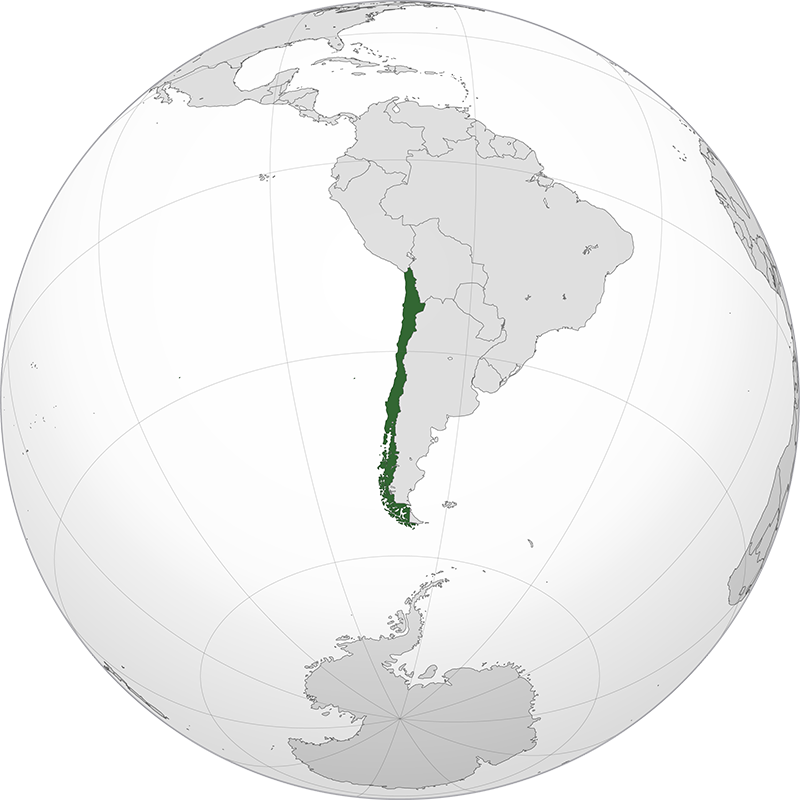
- Population:
- 19,765,000
- Religion:
- Christianity
Chile's history includes indigenous cultures like the Mapuche before Spanish colonization in the 16th century. It gained independence from Spain in 1818 and developed into a stable republic. The 20th century saw economic booms, political turmoil, and a military dictatorship under Augusto Pinochet (1973–1990). Since transitioning back to democracy, Chile has become one of South America's most prosperous and stable economies.
Chile, officially the Republic of Chile, is a long, narrow country stretching along the western edge of South America, bordered by Peru to the north, Bolivia to the northeast, Argentina to the east, and the Pacific Ocean to the west. It also claims the Chilean Antarctic Territory. Covering an area of approximately 756,102 square kilometers, Chile has a population of about 19 million people as of 2023. The capital and largest city is Santiago. The official language is Spanish. Chile's diverse geography includes the Atacama Desert in the north, the central valley, and the Andes Mountains to the east. The economy is one of the most stable and prosperous in South America, with key industries including mining (particularly copper), agriculture, forestry, and fishing. Chile is a member of international organizations such as the United Nations, the Organization of American States (OAS), and the Pacific Alliance.






